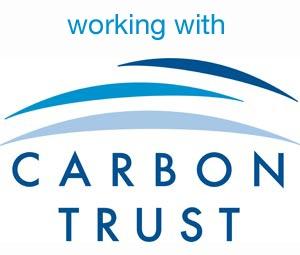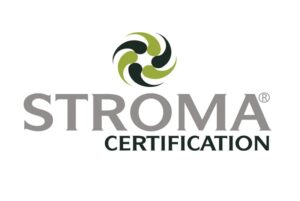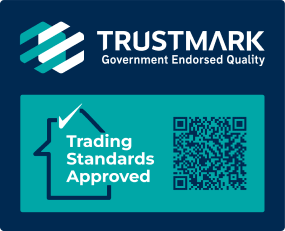As London continues to grow as a global business hub, energy efficiency has become a critical consideration for companies operating in the capital. One of the key tools in assessing and improving energy efficiency in commercial properties is the Commercial Energy Performance Certificate (EPC). This blog explores the impact of Commercial EPC certificates on London businesses, highlighting their importance, benefits, and how they can influence the future of your commercial operations.
What Is a Commercial EPC Certificate?
A Commercial EPC (Energy Performance Certificate) is a document that provides an energy efficiency rating for a non-residential property. The rating is given on a scale from A (most efficient) to G (least efficient), based on factors such as insulation, heating, cooling systems, and lighting. The certificate also includes recommendations for improving the building’s energy performance.
In London, where energy efficiency regulations are stringent and sustainability is a priority, having a valid Commercial EPC certificate is not just a legal requirement but also a strategic asset for businesses.
Why Is a Commercial EPC Certificate Important for London Businesses?
1. Legal Compliance
In the UK, a valid Commercial EPC certificate is required whenever a commercial property is sold, rented, or constructed. Failure to have a valid EPC can result in significant fines and legal complications, which could disrupt business operations. For London businesses, where property transactions are frequent and competitive, ensuring that your property has an up-to-date EPC certificate is crucial for avoiding legal issues and maintaining smooth business operations.
Additionally, the Minimum Energy Efficiency Standards (MEES) regulations, which came into effect in April 2018, make it illegal to lease or renew leases on commercial properties with an EPC rating below E. This regulation is particularly relevant in London, where the property market is highly regulated.
2. Impact on Property Value and Marketability
A high EPC rating can significantly enhance the marketability of a commercial property. In London’s competitive property market, businesses are increasingly seeking energy-efficient spaces that align with their sustainability goals and reduce operational costs. A property with a good EPC rating is more likely to attract tenants and buyers, leading to quicker transactions and potentially higher rental or sale prices.
Conversely, properties with poor EPC ratings may struggle to find tenants or buyers, as they are associated with higher energy costs and may require expensive upgrades to meet regulatory standards. For business owners and property managers in London, maintaining a strong EPC rating is essential for maximising the value and appeal of their assets.
3. Cost Savings and Operational Efficiency
One of the most immediate benefits of a Commercial EPC certificate is the potential for cost savings. The recommendations provided in the EPC can guide businesses on how to improve the energy efficiency of their property, such as upgrading insulation, installing energy-efficient lighting, or optimising heating and cooling systems. Implementing these improvements can lead to substantial reductions in energy consumption, translating into lower utility bills.
For London businesses, where overheads are often high, these savings can be significant. Reducing energy costs not only improves profitability but also frees up resources that can be reinvested into other areas of the business.
4. Enhancing Corporate Social Responsibility (CSR) and Brand Image
In today’s business environment, corporate social responsibility (CSR) and sustainability are key drivers of brand image and reputation. Customers, clients, and stakeholders increasingly expect businesses to operate in an environmentally responsible manner. A strong EPC rating is a tangible demonstration of a company’s commitment to sustainability and can enhance its CSR profile.
For businesses in London, where competition is fierce, demonstrating leadership in sustainability can differentiate your brand and build stronger relationships with eco-conscious customers and partners. A high EPC rating can be a valuable marketing tool, showcasing your commitment to reducing environmental impact.
5. Futureproofing Against Regulatory Changes
The UK government is continuously tightening energy efficiency regulations as part of its commitment to reducing carbon emissions. London, as a leading city in sustainability initiatives, is likely to see even stricter standards in the future. By ensuring that your commercial property has a strong EPC rating now, you can future-proof your business against potential regulatory changes.
Properties with poor energy efficiency may require costly upgrades to meet future standards, while those with high EPC ratings are more likely to remain compliant and avoid additional expenses. For London businesses, staying ahead of regulatory changes is crucial for maintaining operational stability and avoiding unexpected costs.
6. Supporting London’s Environmental Goals
London has set ambitious targets for reducing carbon emissions and improving energy efficiency across the city. By improving the energy performance of commercial properties, businesses can contribute to these environmental goals. A high EPC rating not only benefits individual businesses but also supports the city’s broader efforts to create a more sustainable urban environment.
Participating in these efforts can also enhance a business’s standing within the local community and with government bodies, potentially opening up opportunities for grants, incentives, and other support for sustainable practices.
How to Obtain a Commercial EPC Certificate in London
Obtaining a Commercial EPC certificate involves working with an accredited non-domestic energy assessor. The assessor will conduct a thorough inspection of your property, evaluating factors such as:
- Building Fabric: Insulation, walls, roofs, and floors.
- Heating, Ventilation, and Air Conditioning (HVAC) Systems: Efficiency and effectiveness of the systems in place.
- Lighting: The type and efficiency of lighting systems used throughout the property.
- Occupancy and Usage Patterns: How the building is used and occupied on a daily basis.
Based on this assessment, the energy assessor will calculate the EPC rating and provide a certificate along with recommendations for improving energy efficiency.
Conclusion
Commercial EPC certificates play a crucial role in the business landscape of London, impacting everything from legal compliance and property value to cost savings and corporate reputation. For London businesses, understanding the importance of maintaining a strong EPC rating is essential for staying competitive, reducing operational costs, and supporting the city’s sustainability goals.
Whether you’re a property owner, manager, or tenant, ensuring that your commercial space has a valid and favourable EPC rating is not just a regulatory necessity—it’s a strategic advantage. By investing in energy efficiency and maintaining a high EPC rating, you can enhance your business’s profitability, reputation, and resilience in the face of future challenges.
If you haven’t yet obtained a Commercial EPC certificate for your property or need to update an existing one, now is the time to take action. Working with a qualified energy assessor will help you navigate the process and ensure that your business is positioned for success in London’s dynamic and competitive market.












